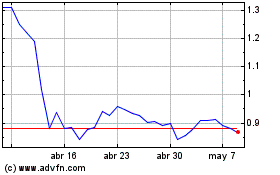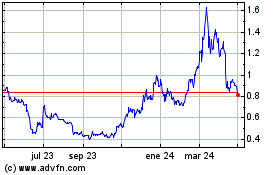Bitcoin Remains Below $100,000: Is the Bull Market Over or Just Taking a Breather?
02 Enero 2025 - 11:30PM
NEWSBTC
The Bitcoin market has been experiencing a phase of correction in
recent weeks following its recent surge beyond $108,000. This
decline has led to growing concerns among investors about whether
the market is entering a prolonged cooling-off period or if this
correction signifies the end of the bull cycle. However,
historically, such phases have been common in Bitcoin’s market
cycles, often followed by periods of renewed upward momentum.
Analysts are now turning to key on-chain metrics to provide
insights into the current phase and its implications for Bitcoin’s
price trajectory. Related Reading: Market Alert: Bitcoin’s $81K
Support Zone Could Decide Its Next Big Move Key On-Chain Indicators
Reflect Market Sentiment A CryptoQuant analyst known as Avocado
Onchain recently shared an analysis suggesting that the market
remains within a broader bull cycle. Using on-chain indicators such
as the Adjusted Spent Output Profit Ratio (SOPR), Miner Position
Index (MPI), and funding rates, the analyst outlined the current
state of Bitcoin. According to the report, the SOPR (7-day Simple
Moving Average) remains above 1 but is trending downward,
indicating reduced profit margins for sellers. This metric often
acts as an early signal of market sentiment shifts, with drops
below 1 historically triggering rebounds as selling pressure
subsides. The report further analyzed Bitcoin’s Miner Position
Index (MPI). This index measures miner behavior, particularly their
tendency to sell Bitcoin in anticipation of significant market
events, such as halving cycles or peak price levels. The current
trend in MPI shows no significant outflows from miners to
exchanges, suggesting that large mining operations are holding
their Bitcoin reserves. Avocado added that this indicates
confidence in the long-term value of Bitcoin, even as short-term
volatility persists. However, periodic sell-offs to cover
operational costs are still expected. Another important indicator
highlighted by the CryptoQuant analyst is total network fees,
measured using a 7-day Simple Moving Average (SMA). This metric
reflects transaction activity and overall on-chain engagement.
Avocado disclosed that the recent decline in network fees suggests
reduced trading activity and a temporary cooling-off phase in
market participation. Historically, such periods of lower
transaction activity have preceded periods of renewed bullish
momentum, especially when other indicators align with this trend.
Bitcoin Funding Rates And Investor Sentiment Funding rates, another
significant indicator in the analysis, have shown a downward trend.
Funding rates represent the cost of holding long or short positions
in Bitcoin futures contracts and are often used to gauge market
sentiment. During bull cycles, sharp drops in funding rates have
often been followed by rebounds, as bearish sentiment reaches an
extreme point and buyers return to the market. Related Reading:
Bitcoin Price Eyes Fresh Gains: Can Bulls Break Through? The
analyst emphasized that while current on-chain data suggests a
cooling-off phase rather than the end of the bull cycle, short-term
price movements remain uncertain. Historically, funding rate drops
have served as buying opportunities for long-term investors,
particularly during periods of heightened market pessimism.
Featured image created with DALL-E, Chart from TradingView
Flow (COIN:FLOWUSD)
Gráfica de Acción Histórica
De Dic 2024 a Ene 2025

Flow (COIN:FLOWUSD)
Gráfica de Acción Histórica
De Ene 2024 a Ene 2025
